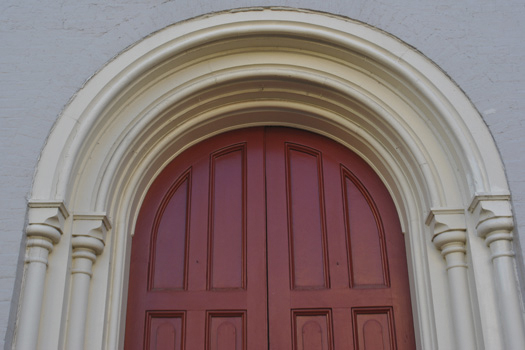The origins of Rosebud missions goes back to Feb, 1997 when Jan Saylor, Outreach and Youth, proposed a trip to repair homes. Trip cost was $700 with each participant paying $350. Left over funds were given back to the Lakota tribe for scholarships and financial assistance. The trip went during July, 1997 as became the trend.
By 1998, 17 people were on the trip. They felt the trip was a success with more interaction with the people they were serving. In 1999, there were 23 team members from St. George’s and the Fredericksburg United Methodist Church.
By 2002, the trip expanded to include others from both the Methodist church and Episcopal churches in King George – 16 people from St. George’s, 6 from Fredericksburg United Methodist Church, 12 people from King George’s were going.
The mission became associated with the Tree of Life a relief agency. It involved refurbishing Native American owned homes to make them more livable, safe and weatherproof, assist in stocking and selling items at the Methodist Thrift Shop or help serve noonday meals in a local church. One of the great components of Tree of Life is the ability to become a part of the life of the Rosebud Reservation Everything from thrift store help to construction will be done while they are there.
In 2006, the team worked on eight houses, four of which were complete bathroom renovations. They also worked on kitchens, storm doors and windows.
Earl Baughman, who was a leader and organizer on these trips, wrote about his experiences from 2007-2009:
ONE STEP FORWARD
“Gary Moore didn’t have a secret. Gary wasn’t partial to white people and he made no bones about it. At one point he even had a large sign in his front yard suggesting that those of Caucasian descent were definitely not welcome on his property and should go someplace other than the Lakota Sioux reservation where he resided. While Gary Moore is not exactly a name that one would associate with an Indian, Gary is a member of the Sioux tribe and resides in the small town of Mission South Dakota on the Rosebud Reservation.
“Like many of his fellow tribal members, Gary’s house was in dire need of some basic repairs, and he lacked the money, resources, and knowledge to fix the problems. Despite his aversion to white people, Gary applied to the Tree of Life Mission run by the United Methodist Church and located there in Mission for some much needed assistance.
“In July of 2007, the Virginia Rosebud Renovators comprised of members from St. George’s and Trinity Episcopal churches in Fredericksburg, the Fredericksburg United Methodist Church, St. Mary’s Catholic Church in Fredericksburg, St. John’s Episcopal Church in King George, and other concerned citizens from the Fredericksburg area arrived at the Tree of Life on their annual mission trip to the Rosebud Reservation. One of our teams, led by Mr. Bart Mix was assigned to perform the repairs on Gary’s house. They did several days of work there, replacing the water heater, kitchen and bathroom cabinets, several windows, and a host of other minor repairs. Gary was at home during this time and actually got rather involved with the team and the ongoing work.
“In 2008, the Virginia Rosebud Renovators returned to Rosebud and Bart and his team decided to check in on Gary and see how he was doing. When they knocked on the door, Gary came to the door, peeked out, and said, “just a minute”. He, returned in a couple of minutes, and opened the door proudly wearing the Virginia Rosebud Renovators T-shirt that had been given to him the year before.
“I don’t know how much Gary’s overall perspective has been changed by our efforts, but I do know that we have taken yet another step forward in establishing a trusting relationship with those who desperately need our help.”
Epilogue – By 2011, problems ensued during change in Bishops. The old Rosebud account was split into two “Native Americans – South Dakota” and “Native Americans – Virginia”. The new bishop is focusing on education and relationship building but we did not return to South Dakota until 2014.
